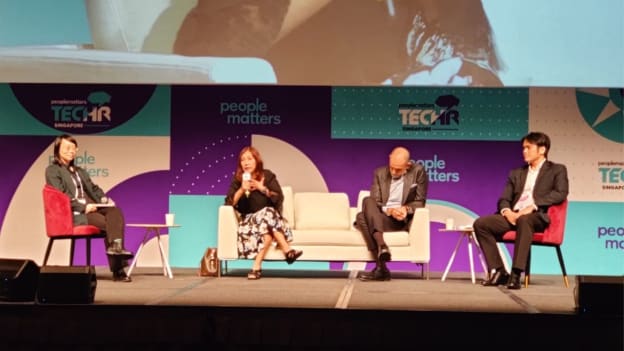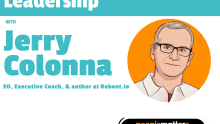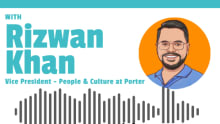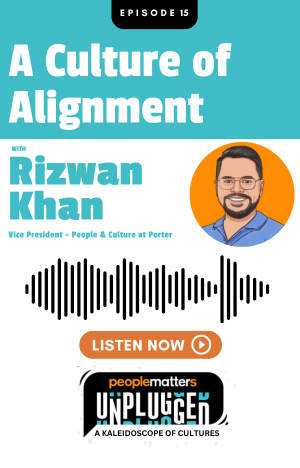How HR leaders can get started on their data journey

Data makes the world more legible, even more so in HR. It sets the context, offers a keyhole in the future and acts as a guiding lantern in the business landscape disrupted by the evolution of new ideas, tools and processes. It has become urgent for HR professionals to cultivate a passion for data and to invest in developing those skill-sets that will help them get started on their data journey. And to empower our community’s leaders in the very direction at People Matters Tech HR Singapore, Dr Jaclyn Lee, Chief Human Resources Officer, Singapore University of Technology and Design; Dr Fermin Diez, Deputy CEO and Group Director, NCSS; and Henry Liew, Global Innovation Director, BIPO come together in a power-packed panel to share expert insights on the world of data analytics and how it ties in with HR.
The challenges that need to be addressed
Before starting on any journey and in this case, the data journey, it is vital to understand the problems getting in our way and cleverly break that cycle. One of the most pressing problems, in this case, would be the mindset problem among HR leaders and professionals, wherein they limit themselves to the idea that they are not good with numbers.
But what they don’t realise is that there is no need to be good with numbers, one only needs to converse with numbers, and be knowledgable about them especially today when as a result of the pandemic, the CEO has far higher expectations from the HR. It has become pivotal today for HR to add value to the business strategy by answering business questions around profitability, revenue and customer retention through HR data.
Additionally, with companies building up a ‘data warehouse’ by integrating data from different platforms and tools, these transactions need to be translated into insights that will benefit employees and administrators and are also tied back to revenue costs. When we talk about making people ‘data analytical’, it’s not as much about the technologies implemented but about how the data curation methods are implemented and communicated inside the company. The role of leadership is especially important in this case.
Another thing that must be considered is the questions asked, and the hypotheses formulated. Narrow hypotheses or problem statements tend to dampen confidence in not only generating data but reduce the opportunities to develop hypotheses from a bottom-up approach.
Don’t start with the data, start with the business problem
HR professionals today need to realise that the business is looking for solutions to the problems around growth, revenue and profits. Even when we mine HR data around programs such as recruiting, training and pay; it needs to be linked back to these critical, burning business aspects. Circling back to an earlier point, the best step forward is to change our mindset from improving HR metrics to instead improving business metrics through HR means.
Lose the fear of numbers
Numbers aren’t as hard to get as the HR community believes them to be. The game-changer is having the right framework to look at numbers. As per our panel of experts, four concepts from statistics are integral: R squares, T-tests, correlations and multiple regressions but the best part is Excel makes all the calculations. All that is needed is analytics software to translate these numbers into insights at the right time within the right context. Additional basic finance concepts around revenue, types of profits and customer satisfaction potential are enough. Simultaneously, businesses today also need to invest in making people talk about analytics to shift from that mindset of failure or hesitation.
Understand the on-ground problem statement
As important as data analytics is, knowing the unique situation and challenges of the company is vital. Benchmarks accordingly need to be set to understand the pain points and link them to business outcomes. However, when outliers are detected, it is important for organisations to not encourage a shame and blame culture but rather develop hypotheses which can be served out to the management to find solutions. One cannot deny that HR taxonomy is context driven and there are several solutions to the same problem. So what organisations can instead do is not emphasise flaws, but seek out role models to address the loopholes.
Final words of advice to HR professionals
- Generate social assets: One cannot undervalue the social asset that is engineered around communicating different methods the organisation is using for data analytics. Encourage people to talk about NPS, engagement metrics, to talk about confidence if one is using inferential statistics and accuracies in the case of machine learning. Instead of directly building skills, one has to invest in the role of translators that can make the journey ahead easier.
- Stop having opinions: Today’s HR leaders when approaching senior management must not come with opinions but rather hard data. The confidence must stem from an ‘I know’ attitude which is possible only with data.
- Start reading our panellists' books and take classes: Both Jaclyn and Fermin have written several books (Managing people, culture and data in the modern organisation; Accelerating organisation culture change; Fundamental of HR analytics) which detail out case studies and come with exclusive insights to empower the HR community to get started on their data journey. Taking classes also helps build not only skills but also confidence.
With HR taking a seat at the executive table, one cannot deny that the expectations from this function are at an all-time high. What can empower them to truly show their metal and drive the business strategy in an unpredictable market landscape is HR data exclusively tuned to answer business questions.














